
In silhouette, the world’s largest living bird bears a striking resemblance to an ornithomimid, a member of a group of slender theropod dinosaurs that flourished about 230 million years ago. Like Ostriches, they had long hind limbs and a flexible neck ending in a small, beaked head. Some early paleontologists advanced the theory that this tall, flightless ‘bird mimic lizard’ was the ancestor of the ratites, a collection of mostly large (except for the Kiwi), flightless birds that include the Ostrich, Rhea, Emu and Cassowary, plus the extinct moas of New Zealand, as well as Madagascar’s giant Elephant Bird. Evolutionary scientists further proposed that the various ratite species were scattered across the planet by continental drift.
However, not all their colleagues supported all of that hypothesis. They agreed dinosaur fossils that showed birdlike traits such as feathers, air sacs and light bones clarified the evolutionary kinship of birds and dinosaurs. But, they pointed out, fossil evidence also showed that Ostriches and other ratite relatives evolved between 70 and 60 million years ago, by which time the continents had already broken apart, upending the original dispersal theory.
この記事は African Birdlife の November - December 2020 版に掲載されています。
7 日間の Magzter GOLD 無料トライアルを開始して、何千もの厳選されたプレミアム ストーリー、9,000 以上の雑誌や新聞にアクセスしてください。
すでに購読者です ? サインイン
この記事は African Birdlife の November - December 2020 版に掲載されています。
7 日間の Magzter GOLD 無料トライアルを開始して、何千もの厳選されたプレミアム ストーリー、9,000 以上の雑誌や新聞にアクセスしてください。
すでに購読者です? サインイン

EXPLORING NEW HORIZONS
Keith Barnes, co-author of the new Field Guide to Birds of Greater Southern Africa, chats about the long-neglected birding regions just north of the Kunene and Zambezi, getting back to watching birds and the vulture that changed his life.

footloose IN FYNBOS
The Walker Bay Diversity Trail is a leisurely hike with a multitude of flowers, feathers and flavours along the way.
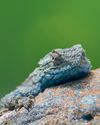
Living forwards
How photographing birds helps me face adversity
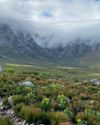
CAPE crusade
The Cape Bird Club/City of Cape Town Birding Big Year Challenge
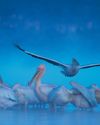
water & WINGS
WATER IS LIFE. As wildlife photographer Greg du Toit knows better than most.
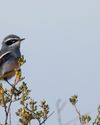
winter wanderer
as summer becomes a memory in the south, the skies are a little quieter as the migrants have returned to the warming north. But one bird endemic to the southern African region takes its own little winter journey.
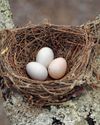
when perfect isn't enough
Egg signatures and forgeries in the cuckoo-drongo arms race

Southern SIGHTINGS
The late summer period naturally started quietening down after the midsummer excitement, but there were still some classy rarities on offer for birders all over the subregion. As always, none of the records included here have been adjudicated by any of the subregion's Rarities Committees.

flood impact on wetland birds
One of the features of a warming planet is increasingly erratic rainfall; years of drought followed by devastating floods. Fortunately, many waterbirds are pre-adapted to cope with such extremes, especially in southern Africa where they have evolved to exploit episodic rainfall events in semi-arid and arid regions. But how do waterbirds respond to floods in areas where rainfall - and access to water - is more predictable? Peter Ryan explores the consequences of recent floods on the birds of the Western Cape's Olifants River valley.
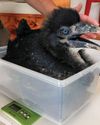
a star is born
It’s every producer’s dream to plan a wildlife television series and pick the right characters before filming.